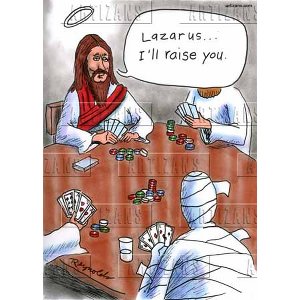
 |
Freethought & Rationalism ArchiveThe archives are read only. |
|
|
#21 | |
|
Contributor
Join Date: Mar 2006
Location: Pittsfield, Mass
Posts: 24,500
|
Quote:
I thought later in Isaiah there was a forecast of light death with zombies running around frightening the populace. I think that's where the author of Matthew cribbed his instance from. |
|
|
|
|
|
#22 |
|
Junior Member
Join Date: Aug 2006
Location: UK
Posts: 40
|
Ah, OK. I'm pretty sure the Ezekiel, Daniel and Isaiah passages are the only references to the return of the living dead in the OT, but if anyone else can shed any light on this, great.
|
|
|
|
|
#23 | |||||
|
Contributor
Join Date: Mar 2006
Location: Falls Creek, Oz.
Posts: 11,192
|
Quote:
Quote:
Quote:
This is not a text for example which seeks to convert people to orthodox christianity. It seems to me to be some form of satire, and send up - a mockumentary of the canon. Quote:
I agree. I have examined over one hundred of these acts and gospels etc and have prepared a simple table of the results. Quote:
|
|||||
|
|
|
|
#24 | |||
|
Junior Member
Join Date: Aug 2006
Location: UK
Posts: 40
|
Quote:
Quote:
Quote:
|
|||
|
|
|
|
#25 |
|
Contributor
Join Date: Mar 2006
Location: Falls Creek, Oz.
Posts: 11,192
|
Hi Philosopher Jay,
After reading through a reference on another thread to this page FWIW there may be another instance at I Samuel 28:3-15 where a female sorceror brings the ghost of Samuel back from the dead. It seems clear that the NT canonical authors drew Zombies from the Greek LXX, and that the Gnostic authors drew Zombies from the NT. The two zombie-scribes, authors of "The Acts of Pilate", Leucius and Charinus, apprehended by the authorities while wandered about downtown Jerusalem after the mass resurrection event, are drawn from - the many bodies of the saints (Gospel of Matthew, 27). The body count is still impressively in favor of the Gnostic corpus. Best wishes Pete |
|
|
|
|
#26 |
|
Contributor
Join Date: Mar 2006
Location: Falls Creek, Oz.
Posts: 11,192
|
It really cant be denied that the Bible has alot of underworld nature to it.
There is some degree of merit in seeing an early christian poker association ... 
|
|
|
| Thread Tools | Search this Thread |
|